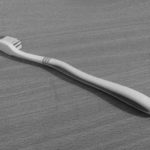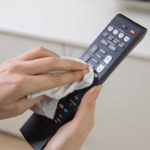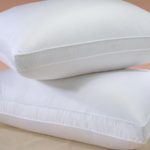Jeans are arguably the most perfect and versatile piece in your wardrobe. Some experts and celebrities advise against ever washing your jeans (think Chip Bergh, CEO of Levi Strauss, or Victoria Beckham), while others suggest freezing them to clean them. But what’s the real deal?
Hygiene experts agree that towels, bedding, and pillowcases should be washed after a certain period. But when it comes to jeans, the frequency of washing is a hotly debated topic, although most experts concur that less is more.
“Denim is a durable fabric and doesn’t need to be washed frequently. However, there are many factors that can influence how often you should wash your jeans,” explains Adam Taubenfligel, co-founder of Triarchy, a sustainable denim company.

The frequency of washing jeans depends on various factors, but if you’re generally clean and don’t sweat much, you can get away with washing them after 3-10 wears. Image: Rd.
First things first, you don’t need to wash your jeans after every wear. It’s unnecessary and will actually make them wear out faster. Experts recommend washing them after about three to ten wears.
Rowan Page-Brennan, a marketing coordinator for a laundry detergent company in the US, says determining the exact day to wash depends on “feel, form, and fragrance.” Of course, if your jeans are visibly soiled with mud, food, motor oil, or anything else, wash them immediately.
Apart from stains, sweat also plays a role in deciding when to wash. The rule of thumb is that if you’re not sweating and your jeans don’t smell, you’re probably good to go. When you do notice a smell, it’s time to wash them. That odor means bacteria are growing, and these bacteria can eat away at the fabric and may also be bad for your skin.
Jeans are made from sturdy denim fabric (100% cotton) or stretch denim (a blend of cotton and lycra or spandex). Sarah Ahmed, co-founder and creative director of the global premium denim brand DL1961, says that sturdy denim will loosen up a bit with wear, so some people prefer to wash them after a few wears. “Stretch denim, on the other hand, retains its shape even after multiple wears. So, the only reason to wash them is if they get dirty,” says Sarah.
For light-colored or white jeans, Shawn Ashby, brand director for laundry at Whirlpool, says that just because they’re light in color doesn’t mean they need to be washed more frequently than dark jeans. Instead, spot-treat small stains whenever possible, rather than throwing the whole pair in the wash.
Washing your jeans regularly can alter their color and fit. But not washing them means bacteria, dead skin cells, and other grime will build up. Freezing your jeans won’t kill the bacteria and, of course, won’t remove dirt either. This grime, combined with sweat and body oils, will settle into the fibers, breaking down the fabric and eventually destroying your jeans.
“Laundry Doctor” Mary Gagliardi, a scientist and cleaning expert at Clorox, suggests that to determine how dirty your jeans are, look along the seams, thighs, and rear. “Washing too much or too little can be problematic. If you go too long without washing, dirt and grime can break down the dye and cause colors to fade,” says the expert.
How to Wash Your Jeans:
For new jeans, it’s best to wash them separately to avoid color bleeding. Turn them inside out to preserve the color, and choose a cold wash as cold water will help prevent shrinkage and fading. Select a gentle cycle and use a mild detergent to reduce abrasion and wrinkling, which can cause color loss. Air-dry your jeans instead of using a dryer.
By Bảo Nhiên (Translated by Rd)
8 Common Mistakes People Make with Cutting Boards
Are you using your cutting board correctly? Many Vietnamese households rely on cutting boards in their kitchen, but not everyone knows how to use them properly, especially when it comes to wooden cutting boards. Check out these 8 mistakes to avoid when using a cutting board to ensure both hygiene and safety for everyone in your family.







































